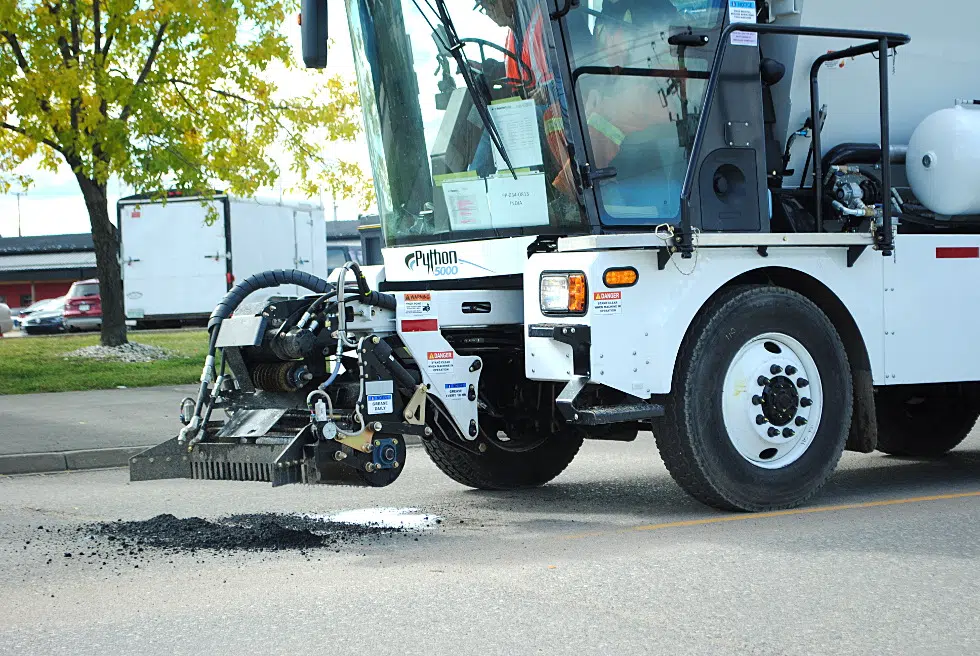
VIDEO: One-man pothole machine
The city is looking at updating the way pot holes are filled in the city with a self-propelled pothole patching machine.
The Python 5000, manufactured by Superior Road Solutions, is a pothole machine that requires only one person to carry out an entire patching operation.
City workers and officials watched as the machine patched up several potholes on Marquis Road on Thursday afternoon.


